Gaza, Eid, and the Notion of the One Ummah
In the Name of Allah, the Most Gracious, the Most Merciful
As Eid al-Fitr approaches, questions arise, perspectives differ, and opinions diverge regarding the permissibility of celebrating Eid amidst the ongoing war that has left nothing but devastation for our brothers and sisters in the Gaza Strip. Sometimes, these questions reinforce feelings of helplessness and powerlessness, accompanied by a desire to give something. At other times, they serve as a means of absolving oneself of responsibility and avoiding the obligations of Eid. Either way, we have two inevitable religious obligations. First, we must support our brothers and sisters in Gaza, stand by them, and share in their suffering, which has been afflicting them for a year and a half. During this time, they have been enduring all forms of killing, devastation, displacement, and starvation. Second, we should express joy, celebrate, and bring ease to ourselves on Eid after a month of fasting, night prayers, and acts of obedience and devotion. This leaves Muslims feeling confused. If they express happiness and joy, it may seem as if they have forgotten the hardships that have afflicted their brothers and sisters, thereby deviating from the notion of the one Ummah and the united body. On the other hand, if they remain at home, overwhelmed with pain and sorrow for their suffering brothers and sisters, and completely abandon joy, refusing to celebrate Eid, they would be neglecting the guidance of Prophet Muhammad (ﷺ). So, what should we do? Which path should we follow?
In fact, before answering this question, we must understand the philosophy of the one Ummah and the philosophy of Eid in Islam. By doing so, we can consider the broader understanding and the Sharia-based justifications, allowing us to determine what we, as Muslims, should do on Eid in light of the undeniable suffering of our people in Gaza.
When we discuss the concept of the one Ummah, we are guided by the Holy Qur’an and the purified Prophetic Sunnah, where it is not synonymous with people, nation, or state; rather, it transcends peoples, nations, states, and even continents. In Islamic heritage, the notion of the Ummah is deeply intertwined with religion, particularly Islamic doctrine. Thus, doctrinal unity serves as the binding tie of the one Ummah, fostering a sense of belonging among its members despite the distance between their lands and the diversity of their colors, races, and languages. Ultimately, this unity manifests as a social practice, in which all components of society merge to form a cohesive fabric that binds them together.
Different verses from the Holy Quran highlight this concept, as our belief in Allah (Subhanahu wa Ta’ala) requires us to turn to Him with unified acts of worship, where all people are equal, forming the notion of the one Ummah. This is evidenced by Allah (Subhanahu wa Ta’ala) statement: “And indeed this, your religion, is one religion, and I am your Lord, so fear Me” (Al-Mu’minun: 23:52), and in another verse: “Indeed this, your religion, is one religion, and I am your Lord, so worship Me” (Al-Anbiya: 21:92). These two verses confirm the universality of this doctrinal bond.
The notion of the one Ummah is founded on the unity of our religion and doctrine, which in turn unites our loyalty, deepens our cohesion, strengthens our bond, and solidifies our brotherhood. The Messenger of Allah (ﷺ) said, “The relationship of the believer with another believer is like (the bricks of) a building, each strengthening the other” (Sahih Bukhari and Sahih Muslim). Furthermore, Allah (Subhanahu wa Ta’ala) states in the Holy Quran: “The believing men and believing women are allies of one another” (Al-Tawba 9:71). The Prophet (ﷺ) also said, “Muslims are like one body; if the eye is sore, the whole body aches, and if the head aches, the whole body aches” (Sahih Muslim).
On the one hand, these comprehensive meanings of the notion of the one Ummah are embodied in the Quranic discourse, where commands and prohibitions are presented in a general form, serving as an umbrella under which all those who testify that there is no god but Allah and that Muhammad is the Messenger of Allah are included. On the other hand, we find that the Quran repeatedly uses the singular term, which denotes singularity yet refers to the entire group, as a reference to the concept of unity. The Quran equates insulting a fellow Muslim to insulting oneself. Allah (Subhanahu wa Ta’ala) says, “And do not insult one another” (Al-Hujurat 49:11). The intended meaning is: Do not insult others, as it is inconceivable for a person to insult themselves.
In the same way, Allah (Subhanahu wa Ta’ala) said: “And do not kill yourselves” (An-Nisa 4:29), which means do not kill one another.” Thus, Allah (Subhanahu wa Ta’ala) equates the act of killing others with killing oneself. This interpretation is clarified by Al-Qurtubi, who stated: “The scholars unanimously agree that the intended meaning of this verse is the prohibition of people killing one another, while also encompassing the deliberate act of self-killing.” (Al-Jami’ li Ahkam al-Qur’an, Vol. 5, p. 156).
The deep and influential meaning of the notion of the one Ummah is rooted in the Islamic doctrine, as its existence is inherently tied to this concept. Consequently, this implies the impossibility of realizing this concept while it is subsumed under or subjected to any other entity—whether nationality, ethnicity, color, or language. This is necessarily connected to the principle of independence, which is founded on the idea that monotheism is for the Creator, and unity is for the creation. This term encompasses all the components of the Islamic world, and every Muslim must preserve it, keeping it away from all deconstructed concepts based on ethnicity, nationality, gender, color, or language—concepts that undermine the true meaning of the one Ummah. This follows what Allah (Subhanahu wa Ta’ala) says: “O mankind! We have created you from a male and a female and made you into nations and tribes that you may know one another. Verily, the most honorable of you with Allah is that (believer) who has At-Taqwa. Verily, Allah is All-Knowing, All-Aware” (Al-Hujurat 49:13).
One of the manifestations of the One Ummah in Islam is the unity of religious rituals. Muslim people, wherever they are, follow one Qiblah in their prayers, fast during the same month, perform Hajj to the same House, and are governed in all of this and beyond by the Holy Quran and the Prophet Muhammad’s (ﷺ) Sunnah. There is no distinction among them except through At-Taqwa. This unity extends beyond religious rituals to encompass shared feelings among them, as mentioned by the Prophet Muhammad (ﷺ): “The believers in their mutual kindness, compassion, and sympathy are just like one body; when one of the limbs suffers, the whole body responds to it with wakefulness and fever” (Sahih Bukhari).
Here, an important question arises amid this barbaric Israeli Zionist war against Palestine in general and our people in the Gaza Strip in particular: What must we do as one Islamic Ummah in response to the killing, devastation, displacement, and starvation taking place? Should we simply sit in our homes, watching with deep sorrow as our brothers and sisters suffer? By doing so, do we deviate from the guidance of our Prophet Muhammad (ﷺ) during Eid, making no effort to bring change to our people in Gaza? Or should we express happiness, joy, and celebration during Eid, only to find ourselves straying from the notion of the one Ummah—the unified body in which, when one limb suffers, the whole body responds with wakefulness and fever?
In fact, there is no contradiction between the notion of the one Ummah and expressing a ritual of Islam, such as celebrating Eid. This can be understood through the philosophy of Eid in Islam. Eid is not merely about the specific day that follows the month of fasting or the standing at Arafah; rather, it is about the deeper meanings and values that this day embodies and their impact on our lives. It is not just a day where brand-new clothes overshadow the essence of its profound significance.
The philosophy of Eid in Islam is based on a purposeful idea, reflecting the meanings of brotherhood and the unity of the Ummah, through which it fulfills the sense of spiritual faith and humanitarian brotherly solidarity. Eid is not a hollow custom that merely exhibits a materialistic, animalistic behavior, limited to faded manifestations such as new clothes and types of food, beverages, desserts, and hanging out in streets and parks. To fulfill this purpose, Allah (Subhanahu wa Ta’ala) has obligated us to give Zakat al-Fitr, ensuring that the needy do not have to ask others for it on Eid and allowing them to share in the joy of the occasion.
The feeling of helplessness experienced by many Muslims toward their brothers and sisters in Gaza must not lead to a negative reaction to Eid celebrations, as no one benefits from this. Sitting at home helplessly or ignoring the situation of your brothers and sisters will neither fulfill the happiness of Eid nor support them. However, this feeling should serve as a turning point for change, as Muslim Eids are a source of renewed strength time and again—an opportunity to transform conditions and circumstances, not merely to change clothes or indulge in different types of food and beverages.
The happiness of Eid lies in spreading joy and comfort to the hearts of your brothers in Gaza and compensating them for their losses in wealth, children, and spouses. The true joy of Eid is found in your efforts to alleviate the oppression that has befallen them and in supporting them to the best of your ability. Eid cannot be truly celebrated without their presence and without standing by them in every way. If you are the Imam leading the Eid prayer, you must speak about the obligations of the Ummah toward them and make it a priority. If you wear new clothes, ensure they have the same. And if you eat the finest food, then give in charity an amount equal to its cost from your wealth for their sake. Most importantly, behave respectfully on social media platforms—do not share photos of family gatherings, nor displays of food and drink. Their hearts are heavy with loss, their stomachs are empty from starvation, their bodies are fragile, and their homes are destroyed. And their situation is not hidden from anyone.
In view of the foregoing, the ritual of Eid, with this understanding among Muslims, conveys one of the positive aspects of Islamic unity, where no contradiction exists between them. What is required is to invest in this ritual to bring about positive change rather than remain helpless and inactive. It is also necessary to bring joy to their hearts rather than merely sharing in their sadness, for sorrow without action does not bring change or alter reality. As Allah (Subhanahu wa Ta’ala) says: “Indeed, Allah will not change the condition of a people until they change what is in themselves” (Ar-Ra’d 13:11).
(Dr. Belal Barakat Salhab is the Assistant Professor, Department of Fiqh and Usul al-Fiqh, International Islamic University Malaysia (IIUM))
Disclaimer
The views expressed in this article are the author’s own and do not necessarily mirror Islamonweb’s editorial stance.

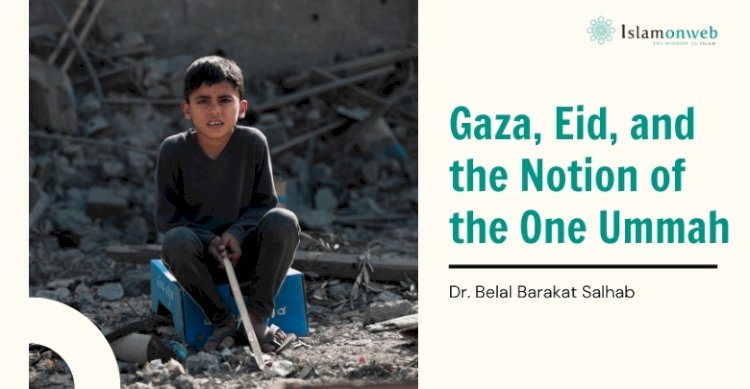


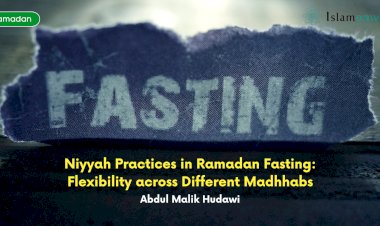
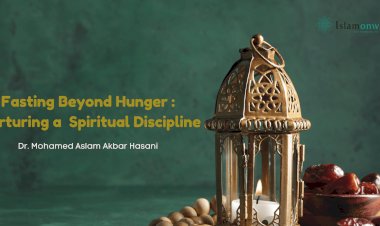
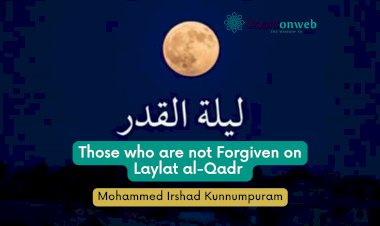
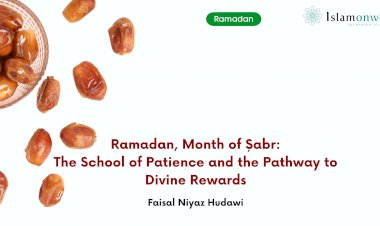
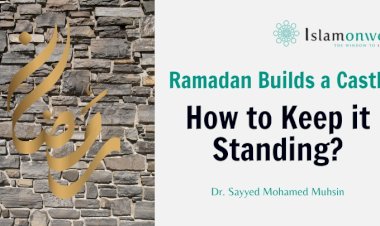
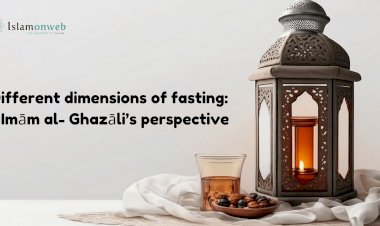














Leave A Comment